Dark Heart Read online
Page 9
‘I can imagine how hard it must have been for you.’
He took a step forward, teeth gritted. ‘No, you can’t. You’re back here at headquarters like those fuckers in the UN in New York. All in your fucking ivory tower, you –’
From the corner of her eye she saw him coming to her. She didn’t want to need him, but she did, and he was by her side. ‘Everything all right here?’
The private turned and glared at him. Green’s chest heaved, his breath exiting his nose audibly. ‘You were there, Doc. Tell her. Tell her what happened because we were following the fucking rules.’
‘A lot of people, hundreds, maybe thousands, died. But Captain Shang didn’t make the rules, if that’s what you’re insinuating.’
‘Fucking lawyers.’
Richard moved between her and Green and, without touching the soldier, he was in his face and staring him down. Maybe an inch separated their noses. ‘That’s no way to speak to an officer, Private.’
Green didn’t move, but Carmel saw his Adam’s apple bob. Richard was a doctor and an officer, and he was also three inches taller and maybe ten kilograms of muscle heavier than the rangy infantryman. He also wore British Army parachute wings on the right sleeve of his camouflage shirt. ‘We’ve all had a tough day, Private. I suggest you go back to your section and talk it over with your mates. There’s no sense in trying to find someone in our own ranks to blame for this madness. Understood?’
Green looked back at Carmel and she had to fight her urge to step back, to turn from him.
‘Understood?’
This time he nodded. ‘Yes, sir.’ When Green looked back at her it wasn’t in anger. The rage had passed. He blinked a couple of times and she thought she saw his eyes glisten.
‘Greeny! Get over here,’ the platoon sergeant called.
The soldier took a step, then glanced back at Carmel. He swallowed. ‘Ma’am . . .’
‘It’s alright, Rick. Get back to your mates.’ Carmel allowed herself a breath.
‘You didn’t need to come to my rescue,’ she said when the private was out of earshot.
‘I know. But I got off on it.’
She smiled, but couldn’t hold it when she noticed the blood on him again. ‘We’ve been getting reports and I saw some of the wounded coming in earlier. It must have been terrible, Richard. We can talk about it later if you like.’ She wondered if he wanted to touch her as much as she wanted to touch him right now. She wanted to hug him and draw his face to her neck and breast and tell him that it was all right, the only thing that mattered was that they should have as much time together as possible.
And the way he looked at her now, despite being tired and filthy and blood-spattered, was the way he’d looked at her that night up on Castle Hill. She knew what he wanted, what he needed. He didn’t need to talk. He needed her, and she needed him. The chemistry was still there, even in these bizarre circumstances. They’d kept the affair a secret from everyone else in the brigade back in Townsville, and been lucky enough to both be deployed to Rwanda on the same rotation.
‘I don’t need to talk about what happened today,’ he said. ‘I just need to feel bloody human again.’
‘Tonight?’ she whispered.
‘Yes. Might be late. They’ll need a hand here, then I’ve got to go see someone.’
‘Who?’ Carmel asked.
‘One of the civvie photographers. That South African girl, what’s her name, from Global News.’
‘Liesl Nel,’ Carmel said. ‘She’s very pretty.’
‘I hadn’t noticed,’ Richard said. The corners of his mouth curled.
‘Very funny. I’ll wait up for you.’
‘Bad lawyer.’
‘Only for you,’ she said.
7
Liesl had made herself as at home as she could in what had once been the manager’s office in a bank building in the Avenue de la République. The bank, robbed and looted during the genocide a year earlier, had never reopened and had been taken over by the NGO Rescue the Children, that had organised for Liesl and several other journalists and photographers to visit Rwanda.
The trade-off for the transport into the shattered country was that Liesl and the others would cover the work of Rescue the Children; however, she was also free to shoot and file as much general news as she wanted. Some of the others had found hotel rooms around town, but Liesl quite liked the peace and the illusion of protection the bank’s thick walls gave her. The manager’s old room was sparsely furnished and a bit of a mess, with dirty clothes everywhere. There was a bathroom out back, which had been for the manager’s use, and the water had been reconnected. One part of the building she refused to go to, however, was the old vault; it was said that the bank’s Tutsi tellers had been executed there.
Tonight, she was working late, developing negatives and printing the pictures she’d taken at Kibeho in the accountants’ office, which she and the other photographers had turned into a darkroom. Alone in the comforting gloom, the horrors of the day’s events materialised in front of her as the chemicals in the trays did their work. She’d already developed, printed and transmitted the picture she knew would be on the front page of newspapers all around the world tomorrow. It was of the RPA officer holding the pistol to the head of the screaming woman. The second frame, where the woman fell to the ground, blood spurting from her head, was more dramatic, more confronting. There would be few countries where both shots would be shown. People in the west had a morbid fascination with Africa’s dark, crazy soul and the endless run of wars, famines and massacres it spawned. They would read and tut-tut about the killings in Rwanda over breakfast, but while it was OK to be told several hundred thousand people had been slaughtered, it was not OK to see the blood, to see someone actually dying.
On the flipside, when she looked at her own work dispassionately she would take the side of the world’s editors in preferring the shot of the man holding the pistol to the woman’s head, her mouth wide with the unheard scream. Knowing that she died in the next instant made the image all the more powerful, whereas the frame of her falling, blood spurting from the wound, was more gory than emotional. Editors would want readers moved, not throwing up into their cornflakes.
The images appearing in front of her now, which she pegged to the line in the darkroom to dry, were mostly of the British doctor Captain Richard Dunlop in action just after the shooting. Although it was unfair of her to single out the British army officer from the Australian unit he was working with, he was a good-looking man and she had some nice frames of him treating the little girl with the wound on her back. The child’s eyes glistened in hopeful gratitude as she looked over her shoulder at the brave white doctor who had come to save her from the intertribal conflicts of her own people. At least that was how a corny, news-hungry subeditor would see it half a world away. Liesl knew enough about the history of Rwanda to know that the conflict between the Hutu and the Tutsi had been encouraged by the Belgians who’d colonised the country and sought to conquer it by dividing the two peoples, favouring one over the other. And as brave as Richard Dunlop and the Australian medics and soldiers had been today, the fact was that the UN had arrived too late to stop the initial genocide, and was now powerless to stop the next round.
Liesl hadn’t expected to end up back in Africa so soon. She’d left South Africa for London two years earlier, at the age of twenty-one. She’d done well at school and had intended to go to university, but when her father had organised an internship on a regional daily newspaper at Nelspruit, the Lowvelder, Liesl had loved the work so much that she’d put off going to varsity in favour of taking the full-time job she was offered on the newspaper. She’d trained as a journalist, earning the praise of the subeditors and her editor, and at the same time she’d pursued the interest she’d had in photography since her thirteenth birthday when her parents had bought her a Canon single-lens reflex camera.
Working as a journalist, even on a conservative Afrikaans provincial newspaper, had expos
ed Liesl to places, peoples and issues she would never have encountered on her parents’ sprawling citrus farm back near the small town of Letsitele, near Phalaborwa. She’d covered strikes and demonstrations and learned more about the black campaign for majority rule than she would have sitting at home watching the pro-government SABC news on television. She’d also seen firsthand the effects of the government’s tools of persuasion: tear gas, rubber bullets and the sjambok. Liesl’s parents lived a life of privilege, as had she, but she couldn’t agree with her father’s steadfast defence of the apartheid regime. After two years on the Lowvelder she’d applied for and landed a job on the liberal English-language paper, the Rand Daily Mail. Her father had been outraged, her mother indulgent, and Liesl had left for Johannesburg.
She pegged up a series of prints of the old Rwandese man in the suit, the one with the bullet wound in his belly, who had gone on and on about a crumpled photograph before dying.
Liesl had seen bigger protests and far more violence in Soweto than she had in the Eastern Transvaal, including demonstrators killed by police gunfire and ANC dissenters executed in the most horrible way by their own people with the feared ‘necklace’, a tyre filled with petrol and thrust over a person’s head and then ignited. It had been shocking, and she had been hardened to the realities of death and torture very quickly, but as she looked at the series of images drying in front of her now she realised the intertribal and interracial fighting that had gone on in her country paled into insignificance compared to what was going on in Rwanda.
People she’d met in England, after leaving the Rand Daily Mail for a job at the Global News wire service, thought South Africa’s problem was racism, and that all of the other conflicts that had ravaged the rest of the continent were the legacy of white colonialism. That, she mused as she looked again at her hero shot of the day – the officer pointing the gun at the woman – was bullshit. It was so much more complicated than that.
Yes, the Belgians had favoured the Tutsis over the Hutus for decades and this had contributed to the animosity that had manifested itself in civil war and genocide, but the Belgians had only been able to conquer and rule because the tribal divisions had already been there. Even on the Mail, where most of the other journalists were English-speaking South Africans, she’d had to endure snide remarks and jokes about her Afrikaner background. The English speakers complained, because it was true, that the National Party government and big corporations favoured Afrikaners over the rooinek, or rednecks, as Afrikaners called English speakers. Tribal divisions ran as deep in the white population as they did in the black, and while they didn’t manifest themselves in mass killings these days, the English and the Afrikaners had fought a full-scale war against each other back at the turn of the century.
Liesl sighed. It was all so bloody depressing.
‘Liesl? Hello?’ she heard a man’s voice call from the foyer of the bank, which had been converted into a makeshift lounge room with an odd assortment of kitchen stools and armchairs scrounged from other offices and houses. The tellers’ counter was a bar, littered with mostly empty liquor bottles and unwashed wineglasses.
Speaking of Englishmen, she thought, smiling to herself. ‘Just finishing up in here. Make yourself comfortable, I’ll be out in one minute.’
Liesl pegged up the last of the prints, took off her rubber gloves and left the darkroom.
‘Howzit?’ she said, opening the door that led from behind the counter to the waiting area.
‘Hi there.’ Richard tapped the pistol in the holster on his hip. ‘I’ve come to make a withdrawal.’
She laughed. ‘This is a surprise. I was just looking at you.’ She hadn’t meant it to sound like a come-on, but she thought that perhaps it did. It was like when she’d taken his cigarettes out of his pocket for him. She had done so because his hands were bloodied, but even amid all that death and suffering she’d quietly enjoyed touching him.
She’d gotten straight to work developing her images once she’d returned late that afternoon and, like him, hadn’t had time to shower or change. She was suddenly self-conscious. ‘Have a seat,’ she said, motioning to one of the tubular steel-framed chairs.
‘Thanks. I was wondering if you had any pictures of that old man who died today – the one with the photograph.’
‘You said you were going to tell me what it was he was saying to you about that picture.’
‘It was important to him.’ Richard closed his eyes for a couple of seconds, then opened them. ‘Something about the picture being why all this was happening. And someone was “evil”.’
‘Everyone’s evil in this country,’ Liesl said.
‘I can’t argue with that. Do you have any pictures of him?’
‘Sure. They’re just drying. They’ll take a few minutes or so. You can have a look through them when they’re ready. How about a drink while you’re waiting?’ Liesl went to the counter, boosted herself up with her hands so that her belly was on top and she was leaning over into what had been a teller’s station. She reached under the benchtop and found a hidden half-full bottle of Captain Morgan Spiced Gold Rum. She straightened up and held it out to him. ‘This OK? Everyone else is out, but when they’re here they drink everything in sight. Bloody journos, hey.’
‘Fine, thanks.’
‘No ice.’
‘Life really is hell in Africa, isn’t it,’ Richard said, taking the glass.
His chin was stubbled and his uniform was filthy. He ran his fingers through his thick, unkempt hair. She glanced at his left hand. No wedding ring. The rum warmed her insides. Pushing a strand of hair away from her eye and tucking it behind her ear, she noticed that he was watching her every gesture, trying to read her. She wondered if he could tell that she had just realised how long it had been since she’d had sex. Too long. She was hit on by soldiers from the various peacekeeping forces on an almost daily basis. Occasionally she was tempted, but she knew that sleeping with a soldier would only cause complications. The way she felt in this moment, though, made her think that this doctor might be worth the complication. It was odd, feeling this way after a day spent witnessing death, but she did. ‘So, why aren’t you serving with the British forces here?’
‘I’m on an exchange posting with the Aussies. I like them. They’re good people. Your accent’s quite soft. Are you based in the UK?’
She nodded and took another sip. ‘I ran away from Africa, from the things I didn’t like about my country, but now my work brings me back here, and even though I’m happy South Africa now has a black president, I look at this place and I wonder what future there is for my home. When Mandela goes we might end up with people like they had running Rwanda.’
He finished his rum and she topped up his glass, then hers. She wrinkled her nose. ‘Hey, no offence and all that, but I think you need a wash, man.’
Richard sniffed under his arm, then scratched it. She laughed. ‘Yes, I know,’ he said. ‘Also I think I’ve picked up some lice or fleas from the camp.’
‘Ewww,’ she teased.
Laughing, he said, ‘I’m actually half-decent when I scrub up . . . and don’t have lice.’ He suppressed a yawn. ‘Sorry. Busy day.’
‘I know. I watched you. It’s funny for me – I’m an eyewitness to death and tragedy. I take pictures and I write about it, but I’m never part of it. I watched you with that little girl, the old man, all the others, the ones who lived and the ones who died. You hardly ever stopped.’
‘When you reached in my pocket for my cigarettes, how did you know that was where I kept them?’
‘I told you. I watched you.’
He downed his rum again. He was drinking quickly, maybe to forget, or maybe for the same reason she wanted another drink. Courage. She did what she had to, said what she had to, in order to get the picture and the story. Politeness and meekness were not traits that suited a news photographer, and a journalist had to have the courage to ask the questions no one else would. Sometimes, not always, she went for a
man in the same determined way she went about getting a story or a picture. Liesl was curious about the pictures he had come for, but her interest in him was overriding her news sense at the moment. She poured two more tots.
‘There’s a bathroom just through there,’ she said, pointing to a connecting door, ‘out behind the manager’s office, which is where I stay. Why don’t you shower while the photos dry and I’ll get them off the line for you?’
He checked his watch and nodded. ‘OK. Thank you.’
She got up and showed him to the bathroom. ‘There’s soap and shampoo there – I hoard all the little bottles from every hotel I stay in – and a towel on the rack.’
‘Thanks.’
She lingered in the doorway. ‘Just call if you need anything else.’
‘Will do.’ He started unbuttoning his uniform shirt and she closed the door. Liesl leaned against it and exhaled.
*
Richard turned on the hot tap and stood under it. African showers, he’d learned, took an age to warm up, and by the time he’d washed his hair the water was warm enough for him to need a little cold.
He thought about Carmel while he lathered his body and wondered how long it would be until Liesl thought up an excuse to knock on the bathroom door. He didn’t consider himself a vain man, but he’d learned how to read women at an early age.
Carmel was pretty and smart and single and he loved making love to her. They’d been sleeping together for several weeks and he was sure she enjoyed the illicitness of their affair. It would have been no big deal if their fellow officers had known of it, but Richard was happy that she wanted to keep it a secret. It did add a sense of spice and urgency to their stolen couplings.
Richard stared down at the mix of blood and grime cascading off his skin and down the plughole. The image of the RPA officer executing the woman seared his mind and he shut his eyes to try to make it go away. But he heard again her pleas and the man’s laughter. Liesl had been there too. How was she dealing with it? he wondered. Perhaps it would help if they both just talked. No, he remonstrated with himself, that would just cause complications. There would be more booze, and he’d be late for his rendezvous with Carmel.

 The Cull
The Cull Blood Trail
Blood Trail Red Earth
Red Earth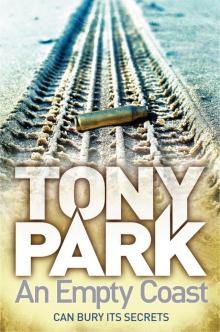 An Empty Coast
An Empty Coast Dark Heart
Dark Heart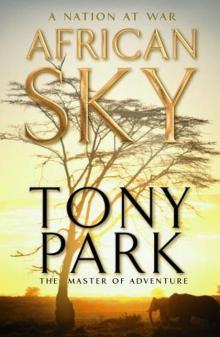 African Sky
African Sky The Delta
The Delta Captive
Captive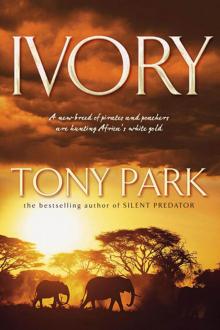 Ivory
Ivory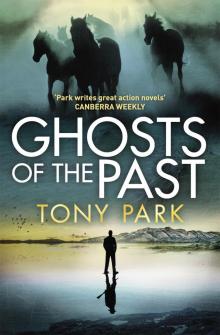 Ghosts of the Past
Ghosts of the Past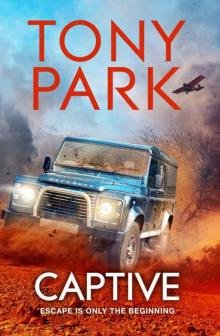 Captive_A High-octane And Gripping African Thriller
Captive_A High-octane And Gripping African Thriller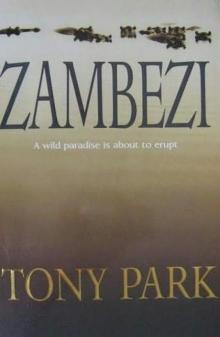 Zambezi
Zambezi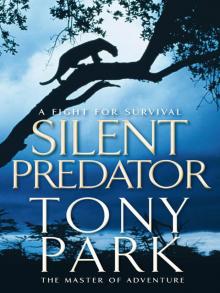 Silent Predator
Silent Predator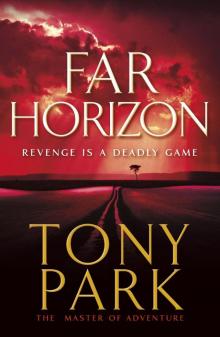 Far Horizon
Far Horizon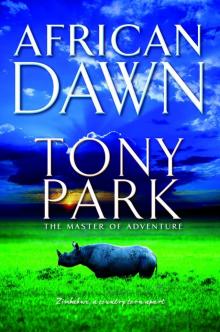 African Dawn
African Dawn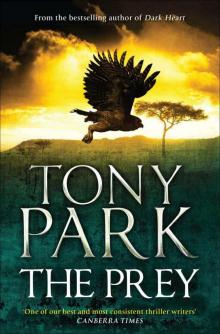 The Prey
The Prey Safari
Safari